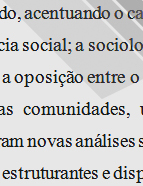

................................
Gama Barros planned a “General History of Administration” that would constitute the first part of a treatise on Portuguese Administrative Law, but it would remain unfinished in the 15th century, leaving out such important institutions as municipal, judicial and military ones. Nevertheless, he analyses medieval law in great depth, from the Visigothic Code to Roman and Canon Law, including charters and customary law. Political and administrative institutions are systematically addressed, covering the organisation of central power, the Royal House and the king’s councils, and the Cortes are analysed as an institution limiting royal powers. Although incomplete, Gama Barros’ work would become essential reading and influence historians of administrative institutions, as evidenced by the reissue edited by Torquato de Sousa Soares (1945-1954). However, in methodological terms, it is not innovative in that it used few archival sources, relying mainly on collections of legislation, the chronicles of Fernão Lopes, Azurara and Rui Pina, the Ordenações Afonsinas, Monarquia Lusitana, the Provas da História Genealógica de D. António Caetano de Sousa, by the Viscount of Santarém, the Memórias para a Historia, and Teoria das Cortes Gerais and the Quadro Elementar das Relações Políticas e Diplomáticas. He sometimes quotes the group of academics from the ARCL (Anastásio de Figueiredo, Aragão Morato and João Ribeiro) and makes many references to the Elucidário. Only in the chapter on general administration does he use documentation from the Chancelleries and Leitura Nova.
Towards the end of the constitutional monarchy, mention should be made of the historians Costa Godolfim (1842/1912) with As Misericórdias (1897); Tomás Maria de Almeida Manuel de Vilhena (1864/1932) A Casa de Bragança, Memória Histórica (1886); Eduardo Freire de Oliveira (1841/?) Elementos para a História do Município de Lisboa, 1882; José Veríssimo Álvares da Silva (1744/1811), Memoria sobre a forma dos juízos nos primeiros séculos da Monarquia Portuguesa, 1796; Eduardo Dally Alves de Sá (1849/1906) Supreme Court of Justice, Historical Evolution of this Institution (1872); Vítor Ribeiro (1862/1930), with History of Public Charity in Portugal (1907) and The Holy House of Mercy of Lisbon (Subsidy for its history) 1498-1898, Institution, Historical Life, Present State and its Future (1902); Joaquim Thomaz Lobo d’Ávila (1822/1901), Study of Administration (1874); Justino António de Freitas (1804/1865), and Essay on Portuguese Administrative Law Institutions (1859); José Frederico Laranjo (1846/1910), Principles and Institutions of Administrative Law (1894); and Agostinho Albano da Silveira Pinto (1785/1852), Synoptic exposition of the general system of public finance in Portugal (1847).
This work is financed by national funds through FCT - Foundation for Science and Technology, I.P, in the scope of the projects UIDB/04311/2020 and UIDP/04311/2020.
